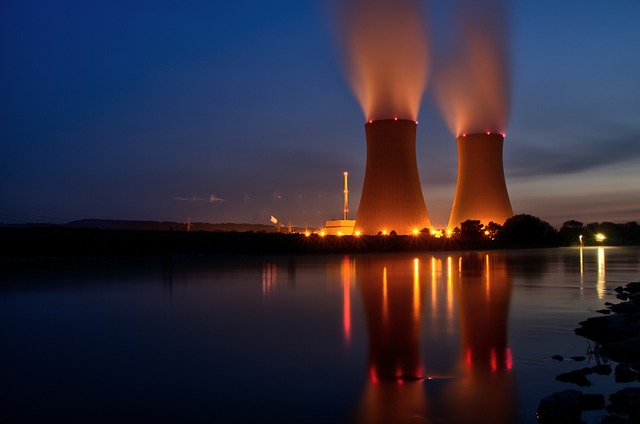Nuclear power plants have long been a source of controversy due to concerns surrounding safety and the disposal of radioactive waste. However, when it comes to the impact on the environment and the economy, nuclear power emerges as a greener alternative to coal or gas power plants.
One of the most significant advantages of nuclear power plants is their low greenhouse gas emissions. Unlike coal or gas power plants, nuclear plants do not burn fossil fuels to generate electricity. Burning fossil fuels releases carbon dioxide and other greenhouse gases into the atmosphere, contributing to climate change. Nuclear power, on the other hand, harnesses the energy from nuclear fission, which does not produce any carbon emissions. This makes nuclear power an attractive option in the fight against global warming.
Another factor to consider is the land and resource requirements of each type of power plant. Coal and gas power plants require large amounts of land for mining and extraction of fuel, along with transportation infrastructure for delivering fuel to the plant. In contrast, nuclear power plants require substantially less land for their operation. Additionally, uranium, the primary fuel used in nuclear power plants, is relatively abundant compared to finite fossil fuel resources like coal or natural gas. This ensures a more sustainable and long-term energy supply for the economy.
Furthermore, nuclear power plants offer a higher energy-generating capacity compared to coal or gas power plants. Nuclear reactors are capable of producing a significantly larger amount of electricity per unit of fuel. This higher efficiency means fewer resources are required, resulting in reduced costs and a smaller environmental footprint. Additionally, the reliability of nuclear power plants is often greater than that of coal or gas plants, as nuclear reactors can operate continuously for longer durations without the need for frequent fuel refills.
While there are benefits to nuclear power, it is important to acknowledge the potential risks and challenges associated with it. Safety is a primary concern, given the potential for catastrophic accidents. The accidents at Chernobyl and Fukushima serve as reminders of the worst-case scenarios when nuclear power goes wrong. However, it is crucial to note that improvements in technology and stringent safety regulations have significantly reduced the likelihood of such incidents occurring in modern nuclear power plants.
Despite the challenges, many countries are investing in nuclear power to diversify their energy mix and reduce dependence on fossil fuels. Nuclear power has been embraced as a cleaner and more efficient alternative that can provide a stable and reliable source of electricity. As renewable energy technologies continue to develop, the debate between nuclear power and other energy sources will likely continue. However, for now, it appears that nuclear power plants are a greener option for the economy compared to coal or gas power plants.
